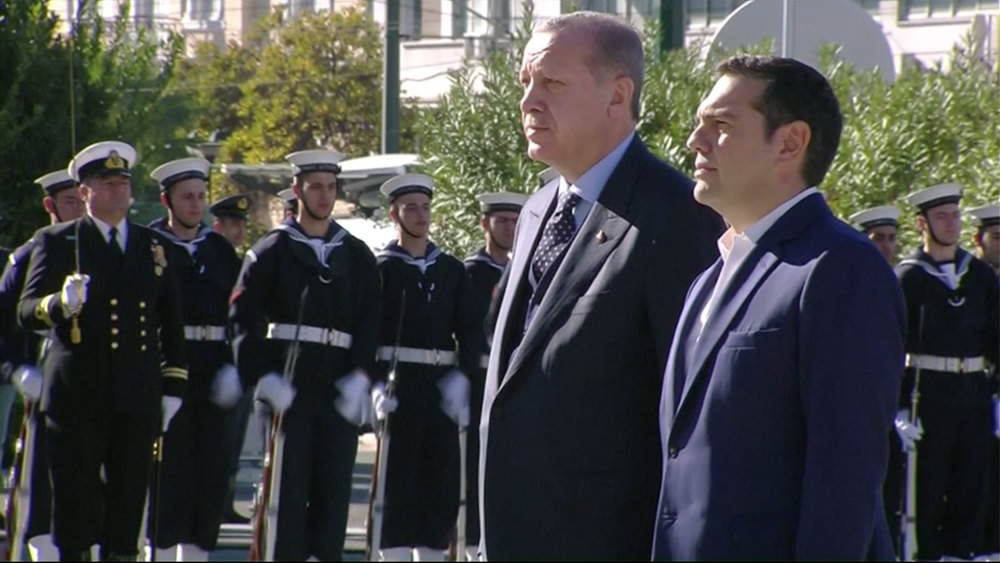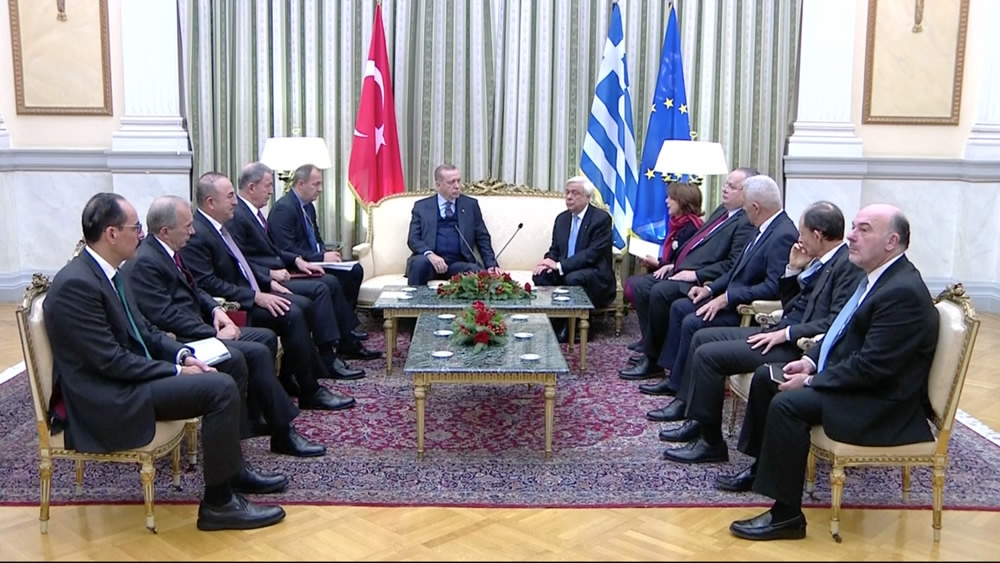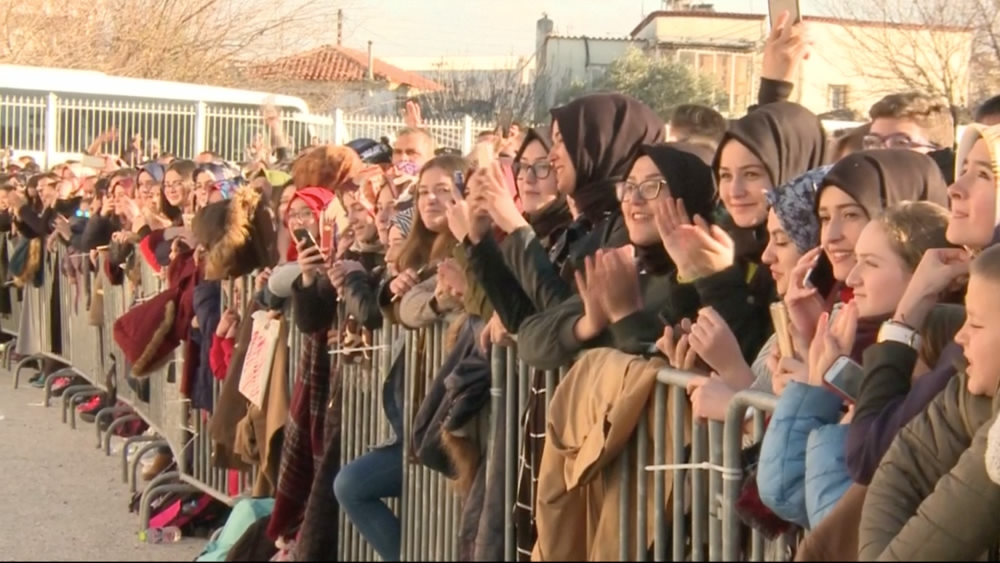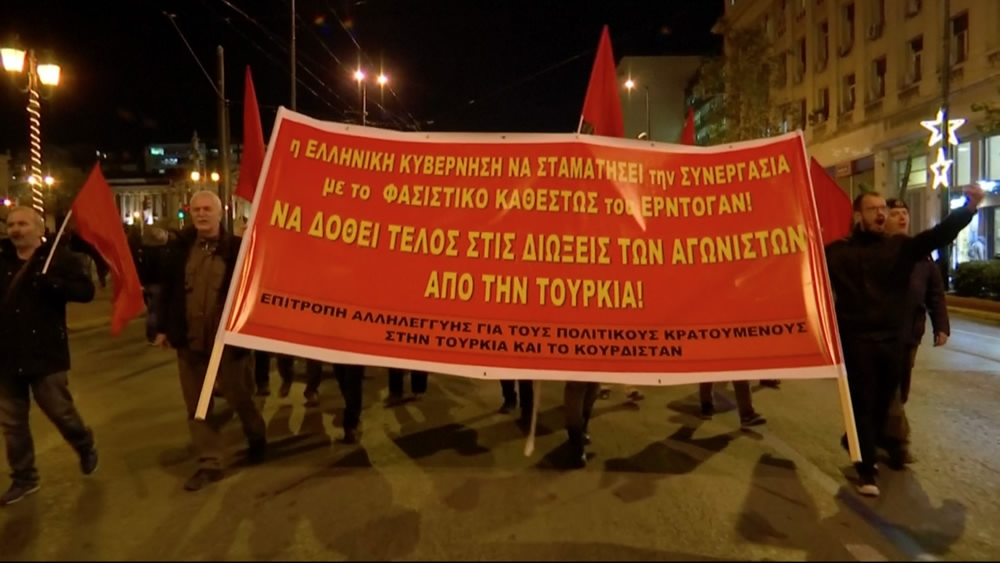
Politics
22:56, 09-Dec-2017
Erdogan's Greece Visit – A historic one, to say the least
By CGTN's Michal Bardavid

It was not only the first visit by a Turkish president to Greece in 65 years but also a vivid reflection of Greek-Turkish relations in a nutshell.
Tayyip Erdogan's historic two-day trip, which concluded on Friday, began smoothly enough with smiles and handshakes all round as he was welcomed by Greek President Prokopis Pavlopoulos and Prime Minister Alexis Tsipras with warm ceremonies.
But the smiles disappeared and tension arose when it came to the discussion of disputes between the two countries.
Erdogan and Pavlopoulos, sitting side by side with cameras rolling, began arguing with a direct and harsh exchange of words on the 1923 Treaty of Lausanne that settled Turkey's borders after World War One.

Greek president and Turkish president at the tense meeting / Reuters Photo
Greek president and Turkish president at the tense meeting / Reuters Photo
Erdogan ignited the exchange by claiming that the treaty needed revision, which is critical for many reasons, but the factor stressed was that it defines the boundaries between the two countries.
A stunned Pavlopoulos responded by emphasizing his expertise in law and that the treaty was non-negotiable. Dissatisfied by the response, Erdogan continued by stating the conditions of Muslims living in Greece’s Thrace region were unjust.
Erdogan said Muslims in Western Thrace were not allowed to choose their own mufti, an Islamic legal authority. He also pointed out that while the income per capita in Greece reached 15,000 euros, in Western Thrace it only reached about 2,000-2,200 euros.

The Muslim minority in Thrace welcomed Turkish President Tayyip Erdogan. / Reuters Photo
The Muslim minority in Thrace welcomed Turkish President Tayyip Erdogan. / Reuters Photo
There are many issues of conflict between the two NATO allies, one being the ethnically split Cyprus. While Erdogan underlined that it was Greek officials who recently walked out during Cypriot negotiations in Switzerland, Greek Prime Minister Tsipras responded by saying the Turkish invasion 43 years ago was an illegal one to begin with.
Erdogan also took the visit as an opportunity to reiterate Ankara’s request for the extradition of eight Turkish soldiers who fled to Greece during the failed coup of 2016. Greek courts have already made decisions on these cases and denied Ankara’s request. Tsipras emphasized their hands were tied as politicians and that the situation was in the hands of the courts.
While Erdogan’s presence in Athens sparked protests by leftist groups, chanting “Erdogan, terrorist!” the picture was quite the opposite when it came to Erdogan’s backers in the town of Komotini in northern Greece.
He was cheered on by hundreds of Muslims, with women in headscarves lining up behind a barrier anxiously waiting to capture a photo of the Turkish president as they called out “leader”.

Greeks protesting Turkish President's visit / Reuters Photo
Greeks protesting Turkish President's visit / Reuters Photo
Though the visit was full of tense moments, the leaders also stated differences should be discussed in a constructive manner. This would no doubt be beneficial for both country’s economies for sure – as there are many areas for cooperation including infrastructure projects that have already been set in motion such as a ferry line between Izmir and Thessaloniki and an express train between Istanbul and Thessaloniki.
7626km

SITEMAP
Copyright © 2018 CGTN. Beijing ICP prepared NO.16065310-3
Copyright © 2018 CGTN. Beijing ICP prepared NO.16065310-3